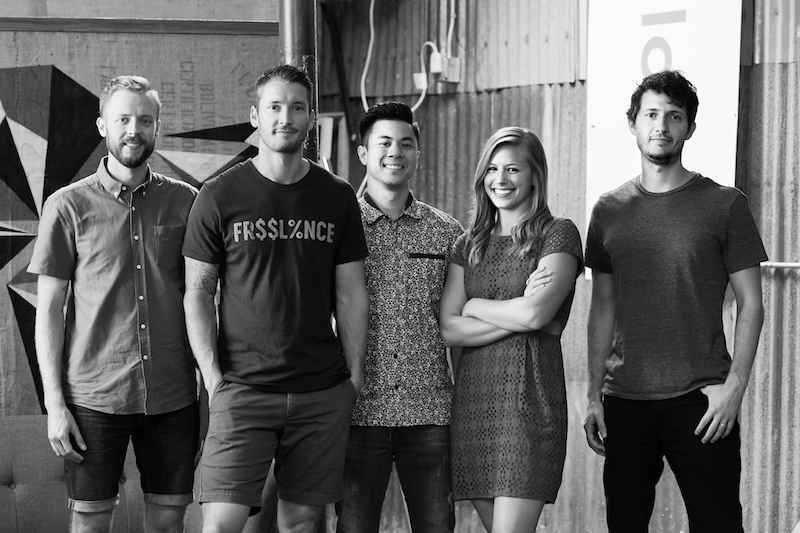Loom, a freelance for pay and equity marketplace for founders and developers, is about to start the next chapter in its quest to give entrepreneurs and freelancers easier access to each other.
After launching last year as a platform primarily for developers and engineers to do the backend coding for founders’ projects, Loom plans to expand its marketplace to UX designers in September.
The move comes on the heels of a new $600,000 round of seed funding that came from the same set of strategic angel investors that got the company going a year ago. That includes five angel investors, including John Hamlin, a former senior vice president at Dell Inc., and Brian Beard, a former partner at the Austin office of Wilson Sonsini Goodrich & Rosati.

I sat down with Loom founder Chase White at Cuvee Coffee in East Austin recently to talk Austin tech and what’s next for Loom.
In short, it’s a new use for what they’ve already done — creating a marketplace for freelancers to bid on open projects posted by new founders, proven founders and mature startups. But Loom’s story also branches out as part of the greater Austin startup economy — and the global one we’re all connected to.
It starts with allowing founders to bypass traditional venture capital markets and hire UX designers and developers directly for pay and/or equity. That, done well, can help people skip a long search for funding that is typically used to hire those key players at early stages.
“A lot of early-stage investors may not necessarily like that,” White told me. “But, the truth is that, the creators of the world are the next generation of early-stage investors. And if you can sell them, then you can bring your product to life.”
And White sees that as key in many tech hubs outside Silicon Valley where funding is a bit harder to come by.
“I do feel like too many people are taking money that they should not be taking…”
“We like to think that we’re contributing to the Austin entrepreneurial society at its very earliest stage,” he said. “How can we help Austin entrepreneurs when they’re just getting started?”
Loom, itself, has found funding from strategic investors who bought in when the company launched a year ago. And White frames his company’s funding in the same way he hopes other startups will pursue capital — with their vision and equity in mind.
“We’ve been offered much more money,” he said of the latest round. “But I feel it’s been one of the rare startup instances where we’ve turned away money because we feel like it’s too early. I know a lot of people say ‘never turn away money,’ but I do feel like too many people are taking money that they should not be taking. You know what I mean? Ultimately, it’s hurting the entire ecosystem.”
And, he has a point. Austin’s market has several high-quality accelerators and co-working spaces to assist founders. But there aren’t many established programs or services, outside universities, for first-time founders. That’s part of what drove the Bay Area’s Founder Institute to set up shop in Austin.
Loom now has one thousand-plus founders who have posted projects – with somewhere around 30-40 percent looking for equity. About 80 percent have been connected with a freelancer, White said.
And when someone is working for equity, they’re likely to be more motivated than someone being paid for a single project.
“Even for this article, if you had a vested interest in Loom, you’d probably write a better article,” Chase said.
Maybe so. But Chase also noted that someone working for equity is more likely to fight for their beliefs to ensure the product works. As is the case in journalism, a developer will likely work for the audience more than the founder to ensure success.
“It’s essentially raising money if you can get somebody to work for equity,” he said. “So it just cuts out the middleman process. And I think that’s what resonates with a lot of people. They go ‘well, I don’t have connections to angels, but I work with these really bright people…’ why not just have them be your investors?”

